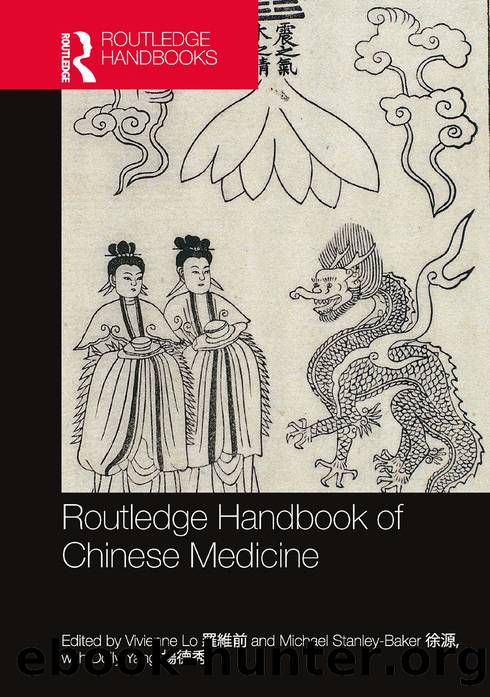Routledge Handbook of Chinese Medicine by Vivienne Lo

Author:Vivienne Lo [Lo, Vivienne]
Language: eng
Format: epub
ISBN: 9780415830645
Publisher: TaylorFrancis
Published: 2022-05-30T00:00:00+00:00
The case of âdoctor sexâ: the modernisation of intimacy
To illustrate further these cultural and political dynamics, we can take the emblematic case of Zhang Jingsheng 張競ç (1888â1970), one of the most notorious Chinese intellectuals from the Republican period (Leary 1994; Peng 1999; Zhang Peizhong 2008; Rocha 2010b, 2015). Zhang was a philosopher who received his doctoral degree from the University of Lyon for his dissertation on Rousseauâs pedagogical thought, and was a professor at Peking University in the 1920s. In 1926, Zhang published Sex Histories (Xingshi æ§å²), one of the most sensational and controversial books in the Republican period, which earned him the nickname âDoctor Sexâ (Xing boshi æ§å士). Sex Histories contained seven sexually explicit autobiographical confessions that Zhang Jingsheng solicited from the public. As befitting of a disciple of Rousseau, Zhang believed that the modernisation of the Chinese psyche had to begin with the liberation of the sexual self via confession. At the end of each confession in Sex Histories, Zhang appended his sexological commentaries, written in the vein of British sexologist Havelock Ellisâ (1859â1939) magnum opus Studies in the Psychology of Sex (1897â1928, 6 volumes). Zhang presented his book as a self-help manual that would teach China about sexual hygiene. He prescribed a âcorrect path of sexâ (xing de zhenggui æ§çæ£è») that, he claimed, would lead to a fulfilling marital relationship; produce quality offspring and prevent the spread of âpervertedâ and âdeviantâ acts, such as masturbation and homosexuality, that were corrupt wastages of a personâs vitality (Zhang 2006, 2008: 154; Chapter 22 in this volume). In short, Sex Histories was supposed to push its readers towards modernity and civilisation by revolutionising their intimate practices.
Zhang Jingshengâs âcorrect path of sexâ revolved around his concept of the âThird Kind of Waterâ (disanzhong shui 第ä¸ç¨®æ°´). Zhang suggested that a womanâs genitals could secrete three kinds of fluids: from the labia, the clitoris and the Bartholinâs glands. He argued that a woman had to release all three kinds of fluids in copious amounts, via extensive foreplay and penetration. All sexual secretions had to be absorbed for their health-promoting effects; a woman had to absorb a manâs semen and the man had to absorb the precious âThird Kind of Waterâ from his female partner. Moreover, Zhang recommended that a man had to discipline himself to delay ejaculation so that his orgasm could coincide exactly with the womanâs climax and her release of the âThird Kind of Waterâ. A child conceived at the moment when a man and a woman reached simultaneous orgasm, with the ovum and the sperm surrounded by the âThird Kind of Waterâ, would be physically stronger and more intelligent. By regularly engaging in such a âperfectâ, pleasurable form of intercourse, Zhang argued, couples would feel physically and psychologically satisfied, and husbands would, therefore, be less likely to seek out prostitutes and to contract venereal diseases, like syphilis, while wives would become less prone to developing âhysteriaâ. In one stroke, Zhang connected âgood sexâ (always already heterosexual and heteronormative) with a
Download
This site does not store any files on its server. We only index and link to content provided by other sites. Please contact the content providers to delete copyright contents if any and email us, we'll remove relevant links or contents immediately.
| Acupuncture & Acupressure | Aromatherapy |
| Ayurveda | Chelation |
| Chinese Medicine | Energy Healing |
| Healing | Herbal Remedies |
| Holistic | Homeopathy |
| Hypnotherapy | Massage |
| Meditation | Naturopathy |
| Reference |
Inner Engineering: A Yogi's Guide to Joy by Sadhguru(6785)
The Power of Now: A Guide to Spiritual Enlightenment by Eckhart Tolle(5743)
Fear by Osho(4726)
Ikigai by Héctor García & Francesc Miralles(4235)
The Art of Happiness by The Dalai Lama(4120)
The Ultimate Bodybuilding Cookbook by Kendall Lou Schmidt(3927)
Yoga Therapy by Mark Stephens(3741)
The Little Book of Hygge by Meik Wiking(3677)
The Healing Self by Deepak Chopra(3568)
Why Buddhism is True by Robert Wright(3443)
The Hatha Yoga Pradipika (Translated) by Svatmarama(3315)
Being Aware of Being Aware by Rupert Spira(3272)
Shift into Freedom by Loch Kelly(3192)
Wild Words from Wild Women by Stephens Autumn(3136)
Work Clean by Dan Charnas(3111)
Happiness by Matthieu Ricard(3037)
More Language of Letting Go: 366 New Daily Meditations by Melody Beattie(3017)
Yoga Body & Mind Handbook by Jasmine Tarkeshi(2867)
Why I Am Not a Feminist by Jessa Crispin(2737)
